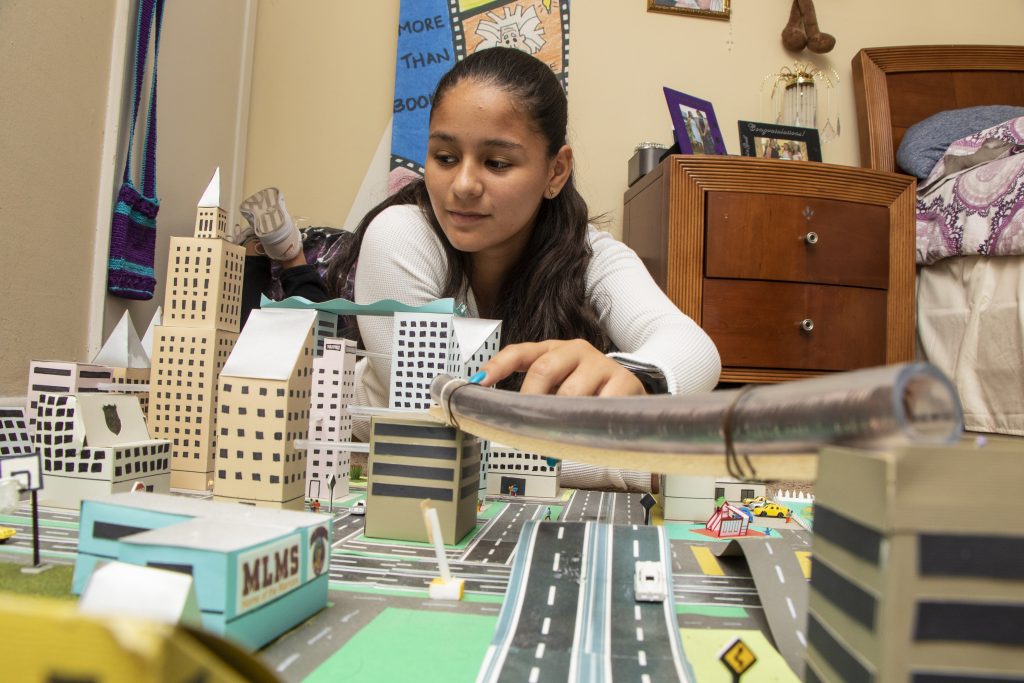Gifted programs display two sides to the coin
By Daniel Gonzalez III
Miami Lakes Educational Center
Pinecrest Glades Elementary student Angelina Reyes, 9, remembers losing all her friends when she got into the gifted program.
“I didn’t have time to talk to them since I was always doing work,” she said. “My teacher became more strict. We used to have a lot of fun but now we have to study more. “
The gifted program aims to accommodate students who are naturally more advanced by providing them with curricula that are faster paced and more rigorous. However, the program is causing issues such as isolation, stigmatization and social anxieties for some students.
In Florida last year, the number of students enrolled in the gifted program in kindergarten through 12th grade was 176,457, only about six percent of approximately 2.8 million total students, according to the Florida Department of Education.
Although a small percentage, the impact is large.
Nathan Carlson, 11, a student at Beachside Montessori Village, didn’t score high enough to make it to the gifted program and said he felt frustrated about it.
“The gifted classes got to do more activities. They also worked faster and got done faster, leaving more free time at the end of the year. I didn’t get to do that because I was in the regular class,” he said.
His mom, Lillie Carlson, who is a fourth- and fifth-grade substitute teacher at Nathan’s school, agreed that the gifted students had more opportunities outside the classroom.
“The gifted classes get to go to a special chess class and a student Apple convention. They have more elaborate projects and present (those projects) to the regular classes,” Carlson said.
“The non-gifted kids would then complain and ask how come they don’t get to go and why they couldn’t do those projects. It’s honestly very unfair.”
Creating balance in a diverse student body can be difficult, said Manuel Sanchez III, principal of Barbara Goleman High School.
“You have to strategize the way you go about things,” Sanchez said. “Ensuring you reward and recognize students without making other students feel separated or left out is very important.”
In Florida, giftedness is included under the Exceptional Student Education plan (ESE). The Florida Department of Education describes “exceptional students” to include children who are gifted and children who have disabilities.
Testing requirements in Florida varies depending on the district. In general, a score of 130 or higher on an IQ test is necessary, although other factors such as language barriers, family income and standardized test scores are also considered.
A gifted distinction is meant to help students who need harder challenges, but it may disadvantage the other students, said education specialist Katie Bory.
“Students being made aware that they did not get into the gifted program definitely has a negative effect,” Bory said. “It hurts their confidence as well as their self-esteem.”

“Everybody knew who the gifted kids were,” says Sofia Palomino, a freshman at Miami Lakes Educational Center who did not make it into the gifted program. “The gifted students were given more attention than the regular kids and it was obvious.”
Sometimes, a gifted label can bring with it extra pressure.
Angelina Reyes’s mother, Laritza Reyes, said her daughter struggled in the beginning of the transition from regular second grade to gifted third grade.
“Her first nine-week progress reports she had Bs and Cs and I was confused because those weren’t grades she used to get,” Reyes said.
After Reyes and her daughter met with the teacher, they realized Angelina had been holding back.
“She was hiding her struggle from the new harder work in fear she would get put back in regular,” Reyes said.
Keeping kids separated by intellectual abilities might hinder their social skills, Bory said.
“They are so focused on academics they forget they are children,” she said.
Some gifted students might not be getting any benefits at all, according to a study conducted at Michigan State University in 2013. It examined 14,000 fifth-graders and focused on the students who fell on the margin with scores qualifying or not qualifying by only a few points.
The gifted students who barely got in showed no improvement over the regular students in standardized tests.
It’s important that every student is given an equal opportunity to succeed, Sanchez said.
“All students should have access to achieve what they want to achieve,” he said.
And some students access those opportunities on their own, regardless of being in the gifted program or not.
“I would not want to be put into the gifted program,” Palomino said. “Not being in it showed me that it’s not really about the course but about how much you want to achieve.”